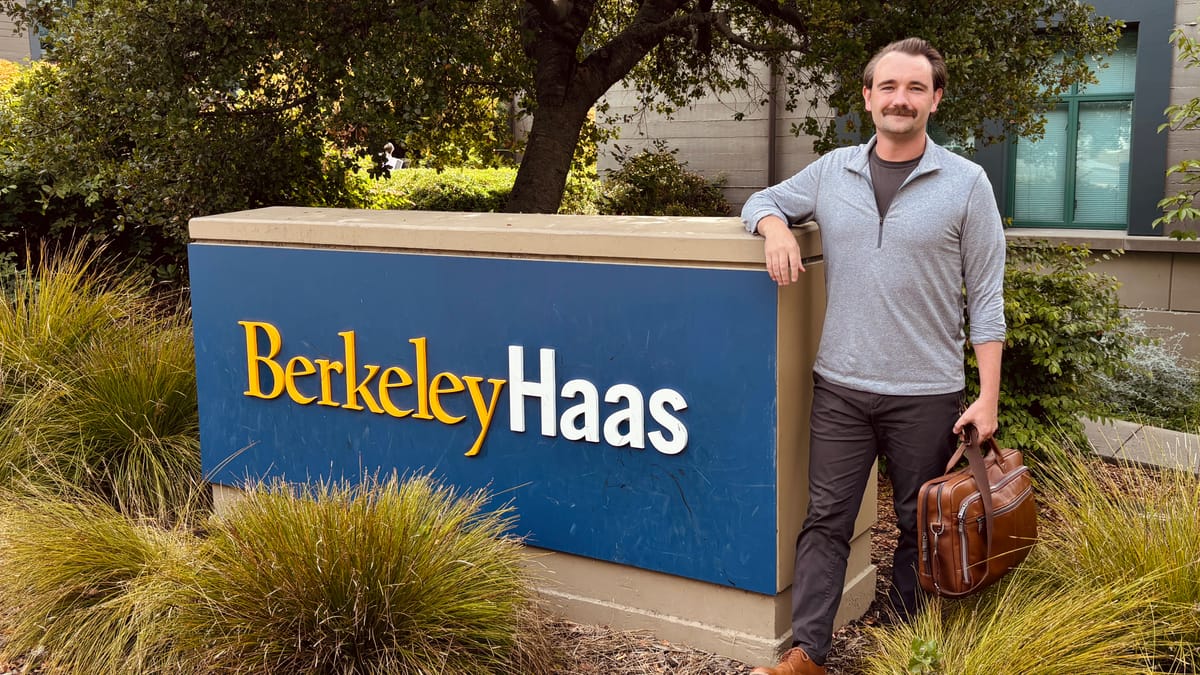Talk: "The Dangers of Over-Confidence" at Berkeley Haas
My biggest mistake wasn’t failing. It was thinking I couldn’t.

Founder confidence is incredibly powerful.
It's what powers irrational ideas, napkin-stage concepts, and "this shouldn't work" bets that sometimes do. That confidence and our romanticized vision of entrepreneurship is what gets investor checks written and teams assembled.
But left unchecked? Confidence can calcify and harden into hubris. That's when founders stop listening, stop testing assumptions, start believing their own mythos, and when things become seriously dangerous.
I would know - I crossed that line in the operation of my adtech startup.
In 2014, I launched an adtech startup that I believed would re-invent e-commerce. Despite little experience in adtech or e-commerce, I believed our fresh eyes would sweep aside multi-billion dollar incumbents and rewrite the rules.
I received validation in the form of winning pitch competitions, nodding journalists, and investor interest. I'd attend networking events, show people our app, and believe people when they told me our app was "cool."
(Spoiler alert: it wasn't that cool.)
But I was hearing what I wanted to hear and I quickly de-coupled from the anchors of honest reflection and probabilistic thinking.
I stopped asking those pesky questions that would kill my buzz, like "are people actually using the app," "are people finding value in this," and "are those KPIs really the key performance indicators or are they just the ones that look best?"
I saw red flags and explained them away as "early-stage volatility," treated (legitimate) doubts from teammates as a lack of vision, and I dismissed uncomfortable data.
With the benefit of hindsight, it was delusion, hubris, and textbook overconfidence, which is why returning to the Bay Area to give my talk at the Haas School of Business felt entirely natural.
Being back where the startup culture runs hottest and the future leaders of Silicon Valley are getting schooled in the art of "believe big" placed me back in the very ecosystem where I once wandered un-anchored.
And I had the privilege of spending time in a class lead by Don A. Moore, a leading researcher on overconfidence, forecasting, and decision-making, and the author of two terrific books: Perfectly Confident and Decision Leadership.
What I Shared with Students at Berkeley's Haas School of Business
After sharing the story of my failed startup, I highlighted a few key points:
- "Everybody does this" obliterated my objectivity. The most dangerous belief I held was that my behavior was normal. I never asked, what’s right? Instead, I asked, what’s acceptable? That mindset moved me away from the objective truth and lead to an outcome that was plainly incorrect. I didn’t see where I crossed the line because I convinced myself there wasn’t one.
- The myth is useful, but the myth must be tested. Every startup story requires a little boldness. But you also need people in your corner who’ll challenge that boldness. You want - need? - mentors who aren't afraid to "spoil the vibe" and are willing to ask hard questions.
- Complete a premortem, and keep it nearby. I spent time going through one of Dr. Moore's actionable insights from his book: imagine why this might fail, and work backwards. This is a tool that protects you from your future self. If I’d taken that step early on - and revisited it regularly - I believe I would have had an easier time maintaining objectivity about how the company was performing.
This talk, which is part of my work on the patterns of startup failure, was delivered at Berkeley's Haas School of Business in October 2025. Thank you to Don A. Moore for the hospitality, and to the students for their attention.